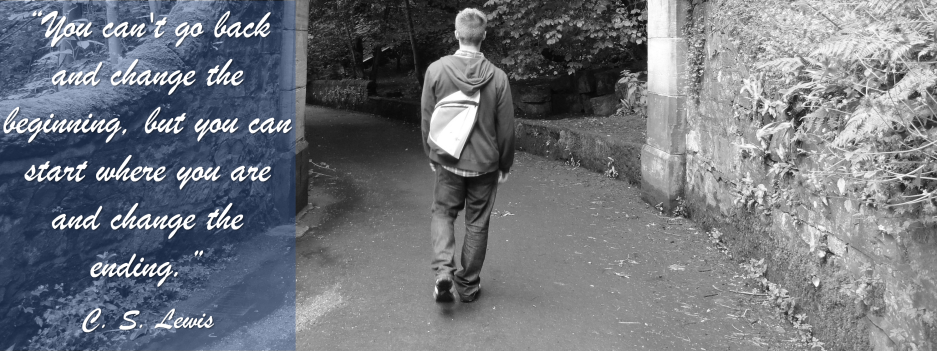Header image credit: me // Featured image credit: Lesley Juarez (freely available via Unsplash)
You’ve likely heard of the Butterfly Effect. It’s the notion that, because of how everything in the natural world is interconnected and deterministic (as some would like to argue), a butterfly’s flapping its wings in, say, Sydney, could ultimately result in a hurricane in, say, the Gulf of Mexico. Sure, that flap of its wings is an infinitesimally miniscule act on the grand scheme of the global climate; but, because of how those few atoms are shifted by the flap of a pair of wings, those atoms then shift other atoms, which shift other atoms, and so on and so forth, until just enough of the right atoms have been shifted in order to tip the meteorological conditions over then edge into producing a hurricane. Small act; big consequences. And rather negative ones at that.
But who’s to say that the consequences couldn’t have been positive instead (e.g., preventing a hurricane)? And who says that such grand effects from small actions must be limited to the deterministic, natural world? In other words, can we get similarly great outcomes from small initial acts in the realms of the intangible and indeterministic (or at least less well understood so we don’t know how it’s deterministic), such as psychology, relationships, and spirituality?
The Power of a Small Seed
I recently returned from a missions trip to Egypt. We were working with a ministry called Healing Grace, which, along with many other things that help provide holistic development for poor villages in Egypt, organizes child sponsorship. Our ministry consisted largely of visiting with children who are sponsored or who are waiting to be sponsored. We chatted with them and got to know them a little to show them that there are people who care about them. We also shared the Gospel and some solid Biblical encouragement. On average, we spent maybe 20 to 30 minutes in each home. It’s a small chunk of time (roughly about two percent of a day), to be sure; but to each of those kids, it could be one of the most exciting and meaningful interactions of his/her year. And the same can be said for sponsorship: it’s a small chunk of change each month to sponsor a child, but for that child, it is life-changing. I’ve seen the impact that the sponsorship has, and not just on the kids, but on their families and on their villages. It’s enormous.
So as I’ve been reflecting on this trip, the big take-away lesson that has captivated my heart and mind is the knowledge that these acts, though small in magnitude, are enormous in power, having huge and hugely positive ramifications that will ripple throughout eternity. It reminds me of the parable of the mustard seed: “The kingdom of heaven is like a grain of mustard seed that a man took and sowed in his field. It is the smallest of all seeds, but when it has grown it is larger than all the garden plants and becomes a tree, so that the birds of the air come and make nests in its branches” (Matthew 13:31-32, ESV). Out of such small acts—a 20-minute conversation, a choice to sponsor a child—come huge and lasting changes in children’s lives, in their villages, and in the world. When God is working, He can make a big end from a small beginning. He is, after all, the One who created the universe out of nothing, so this comes as no surprise. Nothing is too big for Him.

Image credit: GreenForce Staffing (freely available via Unsplash)
But, that’s in the spiritual realm. When God is at work, all bets are off. He is certainly indeterministic and unpredictable, so how can we presume to guess—and much less, know—how His workings will unfold? (Well, to be more accurate, He is unchanging and knows all, so all things are already known by, determined by, and completed in Him; we just don’t know that, so, to our finite minds, it’s inteterministic.) What about realms where we can know more, where we can make empirical observations, develop theories, and make predictions?
The Positivity Spiral
Thankfully, psychologists have been studying this, and the findings are quite promising. There’s a lot to be said for the positive psychology revolution. There has been much research in this field, and some of it is quite compelling. Barbara L. Fredrickson’s broaden-and-build theory asserts—with ample empirical evidence supporting it, I might add—that positive emotions broaden our repertoire of potential thoughts and actions (e.g., if depressed and anhedonic, one is listless and disinclined to do much of anything; but, if filled with joy and excitement, one might feel inclined to play, explore, socialize, study, etc.—that is, the world becomes one’s oyster), and through this broadening, we build a greater array of resources—physical, cognitive, social, etc.—that can help us to cope more advantageously, leading to better resiliency and psychological well-being. Thus, in contrast to how negative emotions can cause a downward spiral in thoughts, actions, and well-being, positive emotions can lead to a converse upward spiral. For example, a 2008 study found that a series of guided meditations and workshops centered on directing love and compassion to self, others, and all living things resulted in individuals’ having greater experiences of positive emotions, mindfulness, purpose, social support, and life satisfaction, and reduced experiences of illness and depressive symptoms. So choosing positivity in a critical moment is able to not only improve your mood in that moment, but also throughout the day, and maybe even throughout your lifetime, and can even positively impact your health and relationships. So never underestimate the power of your thoughts, for better or for worse.
But it’s not just emotions and thoughts that can spiral upward; actions, too, can reach grand ends from humble beginnings. That is, paying it forward could lead to some extravagant sums by the end. It has been shown that cooperative behavior can promote further cooperative behavior in subsequent interactions. However, this effect does not always last indefinitely, so it is worthwhile to remember to keep seeking and taking opportunities to engage in cooperative, prosocial behavior. And be mindful that the action need not be grand; a simple thanks can do wonders (as you may remember from my previous post on gratitude). For example, a 2010 study found that a brief “Thank You” note motivated the notes’ recipients to help not only the thanks-giver, but others as well. Furthermore, the likelihood of people’s willingness to help was in part affected by their feelings of social worth, which can be taken to mean that the more people feel that their actions will be socially valuable, the more likely they will engage in them. I hope by now you’ve seen enough to believe that even the smallest actions can be socially valuable, to believe that you have the means to make this world a better place.

Image credit: me
Simply Smile
Lastly, I want to reflect on one of the smallest and perhaps most underestimated of socially positive—yet potent—actions: a smile. It might seem insignificant, but doesn’t it just brighten your day when your cashier greets you with a smile? Or when the other runner on the path returns your smile as you pass one another? Why is that? Well, it is a positive act, and such positive emotions can be contagious. And we’ve already seen what good can come from just a few small positive emotions. But why is this particular type of positivity so contagious? Answer: the facial feedback hypothesis (or at least that’s one contributing factor). According to this hypothesis, not only do our emotions dictate our corresponding facial expressions, but our expressions can also dictate our emotions, owing to the fact that our facial muscles give feedback to our brains that tell us how we must be feeling. (This is an example of embodied cognition. In this case, it is our emotional cognitive experience that is, to some degree, grounded in our physical sensations and perceptions.)
In a brilliant study from the ‘80s, participants were asked to rate the humor of cartoons under conditions that simulated smiling (holding a pencil in their teeth) or that simulated frowning (holding a pencil in their lips). (See image below of me demonstrating the two positions.) Thus, without actually directing subjects to smile or frown, subjects activated some of the same muscles that are engaged in those expressions—muscles that would then, presumably, tell the brain how to feel. And that’s what was found: cartoons were rated as funnier in the smile simulation condition than in the frown simulation condition. Even though it wasn’t a genuine smile, it was sufficient to affect participant’s moods. I’d say that’re pretty potent.
Image credit: me
But greater perceived humor is just the beginning. Because our minds are so interconnected, and because our minds are organized semantically, as with gratitude’s seeming ability to increase access to positive memories (see Emmons and Mishra, 2010,), a smile, by increasing happiness via facial feedback, may similarly open the mind’s access to other positive memories, thoughts, and emotions. And we’ve seen where that can go. One small thought or action can beget another, until, from a small, mustard seed-sized beginning, we have a profound and far-reaching network of positivity whose actions ripple throughout the world in this life—and maybe even into the next.
So, the choice is yours. Will you choose negativity, or positivity? But beware your choice. Its effects, like those of the butterfly’s wings, will likely be far greater and reach vastly further than the choice itself. So choose wisely. Choose the good.
Yours truly,
D. R. Meriwether, Ph.D.
Renaissance Man and Abundant Life Liver



This reminds me of the story of the two wolves and which one you feed. 🙂
LikeLike
I don’t know this story. Could you enlighten me, please? 🙂
LikeLike
Two wolves story:
An old Cherokee is teaching his grandson about life. “A fight is going on inside me,” he said to the boy.
“It is a terrible fight and it is between two wolves. One is evil – he is anger, envy, sorrow, regret, greed, arrogance, self-pity, guilt, resentment, inferiority, lies, false pride, superiority, and ego.” He continued, “The other is good – he is joy, peace, love, hope, serenity, humility, kindness, benevolence, empathy, generosity, truth, compassion, and faith. The same fight is going on inside you – and inside every other person, too.”
The grandson thought about it for a minute and then asked his grandfather, “Which wolf will win?”
The old Cherokee simply replied, “The one you feed.”
LikeLike
Oh, that does sound familiar…Thanks for reminding me. What a great lesson!
LikeLike